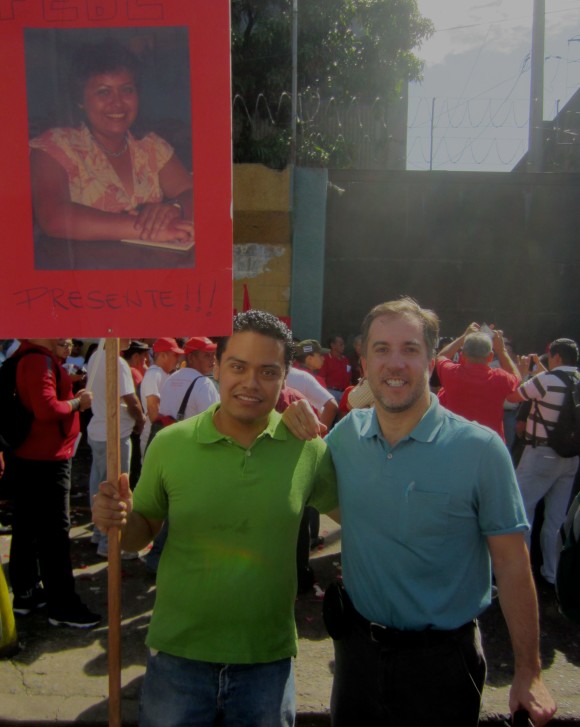
When you write about Penn State research, you have to be ready for a lot of knowledge and passion, maybe some controversy, and occasionally a big word or two that you pretend you understand during the interview, but immediately try to find its definition on your iPhone as you run back to the office to start the story. Not that this has ever happened to me.
You learn a lot. But some of the lessons never make it into the story.
Here is the challenge I heard in the work of Mark Anner, associate professor of labor and employment relations and the director of the Center for Global Workers’ Rights: Would you be willing to take a stand for something you believe in? Let’s go a step farther: Would you be willing to risk your life for something you believe in?
Anner and a colleague recently wrote a report on garment workers in El Salvador. These workers are finding themselves targets of violence and intimidation by corrupt union officials, factory owners, and even street gang members. But violence and intimidation are no stranger to Anner, who worked as a labor activist in El Salvador in the 1980s and 1990s. Early one morning in 1989, a group of armed men broke into his home and abducted him. He was taken to their headquarters, blindfolded, handcuffed, and tossed into a basement jail. For a period of time, his captors did not offer him food or water and forced him to stand for an extended time between interrogation sessions.
While Anner was released in about a day, some of his fellow unionists were held much longer, beaten and even raped.
Six weeks later, he was seriously wounded when paramilitary forces bombed the union cafeteria where he and friends were meeting. Ten people died and scores were wounded.
“Three union friends who were sitting with me at the time were killed, including a top union leader, Febe Elizabeth Velasquez,” Anner writes in the preface of his book, Solidarity Transformed.
The injuries he sustained during the attack created lingering health problems, he adds.
But this hasn’t stopped Anner from returning to El Salvador and continuing his research, work that he hopes will bring justice and prosperity to groups of people that often have no voice.
I should add that Anner did not mention any of this during our interview. I found most of the details of the attack afterward. However, the last few minutes of that interview did bring things home for me. In most releases, I try to mention all the researchers and collaborators who helped out on a study. Unfortunately, for the story on El Salvador garment workers I could not. Anner has colleagues who are still in that country and the release of their names could endanger them.
That was a quick way to put my day in perspective.
